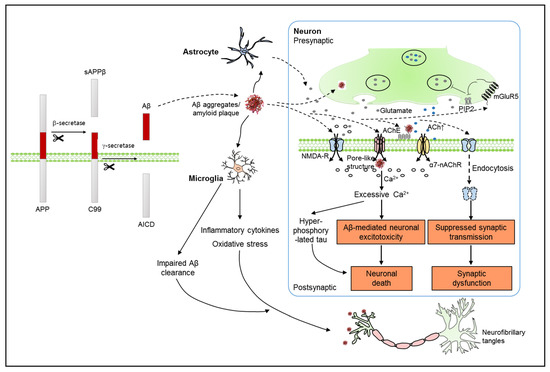“Background: Terpenes form a diverse class of naturally occurring chemicals ascribed various biological activities. Cannabis contains over 400 different terpenes of varying chemical complexity which may add to the known biological activities of phytocannabinoids of relevance to the increasing use of medical cannabis; however, to date have been incompletely characterized. We assessed three terpenes predominant in cannabis: α-bisabolol, myrcene and β-caryophyllene for neuroprotective and anti-aggregative properties in both undifferentiated and differentiated NSC-34 motorneuronal-like cells as a sensitive model for neurotoxicity to oxidative stress and amyloid β (Aβ1-42) protein exposure.
Methods: Cell viability was assessed biochemically using the MTT assay in the presence of either α-bisabolol, myrcene and β-caryophyllene (1-1000 µM) for 48 hr. Sub-toxic threshold test concentrations of each terpene were then applied to cells, alone or with concomitant incubation with the lipid peroxidant tert-butyl hyrdroperoxide (t-BHP) or amyloid β (Aβ1-42; 0-1 µM) to assess neuroprotective effects. Direct effects of each terpene on Aβ fibril formation and aggregation were also evaluated using the Thioflavin T (ThT) fluorometric kinetic assay, circular dichroism and transmission electron microscopy (TEM) to visualise fibril and aggregate morphology.
Results: Terpenes were intrinsically benign to NSC-34 cells up to 100 µM. No significant antioxidant effects were observed following t-BHP administration with myrcene and β-caryophyllene, however α-bisabolol provided a modest but significant increase in cell viability in undifferentiated cells. α-bisabolol also demonstrated a significant neuroprotective effect against amyloid β exposure, with β-caryophyllene also providing a lesser, but significant increase in cell viability. Protective effects of terpenes were more pronounced in undifferentiated versus differentiated cells, attributable more so to an attenuated loss of cell viability in response to Aβ1-42 following NSC-34 cell differentiation. Neuroprotection was associated with a direct inhibition of Aβ1-42 fibril and aggregate density, evidenced by both attenuated ThT fluorescence kinetics and both spectral and microscopic evidence of altered and diminished density of Aβ aggregates. While myrcene and β-caryophyllene also elicited reductions in ThT fluorescence and alterations in Aβ aggregation, these were less well associated with neuroprotective capacity.
Conclusions: These findings highlight a neuroprotective role of α-bisabolol against Aβ-mediated neurotoxicity associated with an inhibition of Aβ fibrillization and modest antioxidant effect against lipid peroxidation, while β-caryophyllene also provided a small but significant measure of protection to Aβ-mediated neurotoxicity. Anti-aggregatory effects were not directly correlated with neuroprotective efficacy. This demonstrates that bioactivity of selected terpenes should be a consideration in the emergent use of medicinal cannabis formulations for the treatment of neurodegenerative diseases.”
https://pubmed.ncbi.nlm.nih.gov/35278524/





